In this article we will discuss the philosophies of Idealism Philosophy VS Realism Philosophy and how these have deep roots in education, highlighting their implications on teaching and learning. Idealism focuses on spiritual values and realism prioritizes studying reality through science and math. Each philosophy has unique approaches to education and character development.
Idealism and Realism are two of the most often discussed philosophical ideas. These beliefs, which have roots in ancient Greek thinkers, have distinctive viewpoints. Idealism is predicated on the idea that reality is fundamentally mental or spiritual, whereas Realism asserts that truth is objective and exists irrespective of human consciousness. The distinctions between Idealism and Realism will be examined, and their advantages and disadvantages will be discussed.
What is Idealism Philosophy?
According to the philosophical theory of Idealism, reality is essentially mental or spiritual. Idealists believe that our perception of the world results from our minds. Furthermore, the physical world merely manifests our consciousness. The origins of Idealism can be found in Plato, who held that the world of matter we experience is simply a shadow of a perfect world of ideas.
The idea that everything we experience is a byproduct of our consciousness is one of the key ideas in Idealism. This belief implies that our perception of reality is a mental projection. How we perceive reality has an impact on how we perceive the world. Idealists contend that we can only truly comprehend the world by examining our perspectives and past experiences. Idealism has significantly impacted many philosophical disciplines and has been used to explain various phenomena, from the nature of consciousness to the universe’s beginnings. Idealism has also been criticized for its reliance on metaphysical presumptions and lack of empirical support.
What is Realism Philosophy?
Realism is a philosophical theory that posits that reality exists independently of human consciousness. Realists believe the physical world is objective and can be studied and understood through empirical observation and scientific inquiry. Realism has its roots in ancient Greek philosophy, with Aristotle being one of the most famous proponents of the theory.
Realism is a philosophical theory that says reality exists apart from what people think. Realists think the physical world is objective and can be studied and understood through scientific inquiry and careful observation. Realism comes from ancient Greek philosophy, and Aristotle is one of the most famous people who believed in it.
One of the essential ideas of Realism is that there is a real, objective world outside of our minds. This belief is that the things we think are true are not just made up in our minds but have roots in the real world. Realists say that we can learn about the world by studying it in the real world and that this knowledge is not based on how we feel about it. The scientific method is rooted in a realist view of the world. It is based on direct observation and experimentation. However, Realism has also been criticized because it does not pay enough attention to how our minds shape how we see the world.
Comparing Idealism and Realism Philosophies
Idealism and Realism Philosophies are often seen as two different ways of thinking about the world, but they also have some things in common. Both theories try to explain how reality works and have changed how we think about it. However, the two approaches are also very different in some crucial ways.
One of the most critical differences between Idealism and Realism is how they think consciousness and reality are connected. Idealists believe that the world we see is made up of our minds, while realists say that an honest, objective world exists apart from ours.
The way that Idealism and Realism see the nature of knowledge is another essential difference between the two. Idealists say we can only understand the world by looking at our thoughts and experiences. On the other hand, Realists say that we can learn about the world through observation and scientific research.
Strengths and Weaknesses of Idealism and Realism Philosophies
Idealism and Realism are two different ways of thinking about the world that has changed how we see things. Idealism focuses on the role of consciousness in shaping our experiences, while Realism looks at the objective world and the importance of observation and scientific inquiry. Both theories have pros and cons, and it is up to each person to choose which makes more sense to them. Ultimately, the debate between Idealism and Realism still concerns philosophers.
As philosophical theories, both Idealism and Realism have their pros and cons. Idealism is often seen as a more intuitive and all-encompassing way to understand the world because it emphasizes the role of consciousness in shaping our experience. However, Idealism has been criticized for relying on metaphysical assumptions and not having enough evidence.
On the other hand, Realism is often seen as a more scientific and objective way to understand the world. Realists say the world can be studied and understood by observing and asking questions about it, leading to scientific and technological progress.
Realism has also been criticized because it ignores the consciousness’s role. Realists tend to think only about the world as it is, not how people feel about it.
Three Types of Idealism
There are many different kinds of Idealism in philosophy, and each has its own view of how reality works.
- 1. Subjective Idealism by Bishop Berkeley
- 2. Objective Idealism of Schelling and Hegel
- 3. Transcendental Idealism of Kant
Subjective Idealism by Bishop Berkeley
Subjective Idealism by Bishop Berkeley is that the reality is fundamentally mental or spiritual and not material. Bishop Berkeley’s subjective idealism explains this concept that the only things that truly exist are minds and the ideas they perceive. According to Berkeley, objects only exist and the mind perceives them. And they cease to exist once they are no longer being perceived. This radical view challenges our common-sense understanding of the world and raises important questions about the nature of reality and our place within it.
Subjective Idealism is a branch of philosophy that says the only things that can be known for sure are what each person has experienced, seen, and felt. It says that physical objects and the outside world depend on the consciousness of the person looking at them. Subjective Idealism has been discussed and argued about, but it is still an important and influential philosophical position. Subjective Idealism, also called immaterialism, is a philosophical theory that says the only things that can be known for sure are the experiences, perceptions, and feelings of each individual. This concept shows that physical objects and the outside world depend on the consciousness of the person looking at them.
Subjective Idealism goes back to the ancient Greek philosopher Plato, who thought that the material world is just a reflection of a higher, non-physical realm of perfect and eternal forms. On the other hand, subjective Idealism did not come into its own as a distinct philosophical position until the early modern era.
The Irish philosopher George Berkeley was one of the most well-known people who believed in subjectivism. Subjective Idealism or immaterialism is Berkeley’s philosophy. It says that the world only exists as a series of perceptions in the minds of different people. Berkeley says there is no such thing as a world outside reason and that all physical objects are just collections of ideas that only exist in the mind of the person who sees them.
The empiricist philosophy of John Locke, who said that all knowledge comes from experience, had a significant impact on Berkeley’s ideas. Berkeley took this idea a step further and said that all knowledge is, in the end, subjective and depends on the person who has it. For Berkeley, the physical world is not a separate, objective reality that can be known apart from personal experience. Instead, the physical world is a creation of the mind that is constantly made and remade by perception.
The German philosopher Immanuel Kant was also an essential supporter of subjective Idealism. Kant’s philosophy, called “transcendental idealism,” said that the mind puts categories and ideas on the raw data of experience to make sense of it. Kant said that the world as we see it is not how it is. Instead, it results from how our minds interpret and organize the information we get from our senses.
Subjective Idealism has been talked about and argued about for a long time in the history of philosophy. Subjective Idealism, critics say, leads to solipsism, which is the idea that only one’s mind can be known and that other minds and the outside world are just things one makes up. On the other hand, subjective idealism supporters say that their theory does not lead to solipsism but rather to a view of the world that emphasizes the importance of personal experience and interpretation.
Objective Idealism of Schelling and Hegel
The philosophical position of objective Idealism is that a non-human consciousness, or “mind,” exists independently of individual human minds. In other words, objective Idealism holds that the universe, including the physical world, expresses universal consciousness or mind. The origins of objective Idealism can be traced back to Georg Wilhelm Friedrich Hegel, a German philosopher who believed that the universe embodies a rational and self-conscious absolute spirit or Geist.
According to Hegel, the physical world and human history result from the fundamental nature. This absolute spirit unfolds and develops through a dialectical process of thesis, antithesis, and synthesis.
Another key figure in the development of objective Idealism is Friedrich Wilhelm Joseph Schelling, who also emphasized the interconnectedness of the universe and consciousness. Schelling believed that nature is a manifestation of an underlying divine principle, which he referred to as the Absolute or the Ungrund. According to Schelling, the physical world is a reflection of the divine mind, and human consciousness is a microcosm of the universal consciousness.
Both Hegel’s and Schelling’s philosophies have had a significant influence on the development of Idealism and continue to be studied and debated by philosophers to this day. Their ideas challenge traditional dualistic views of the mind and the world, offering a more holistic and interconnected understanding of reality.
Philosophy and Aims of Education in Objective Idealism
Unlike subjective Idealism, which holds that only individual minds and their perceptions can be known, objective Idealism has that the world can be learned, albeit through different means than materialist or empirical philosophies. Objective Idealism does not necessarily deny the existence of physical reality but instead believes that physical reality is grounded in a non-human, objective mind or consciousness.
The idea that the world is a unified whole, or an interconnected system of thought, is a crucial feature of objective Idealism. According to objective idealists, everything, including humans, is part of a larger consciousness or mind.
Another critical aspect of objective Idealism is its rejection of dualism, the idea that mind and matter are distinct and separate substances. Objective idealists contend that mind and matter are inextricably linked and interdependent. Because objective idealists believe that the ethical and political realms are expressions of the objective mind, this idea has implications for ethics and politics.
One of the criticisms of objective Idealism is that it is overly speculative and lacks empirical evidence. Furthermore, critics have claimed that the theory fails to account for material aspects of reality and adequately explains the existence of evil or suffering in the world.
Despite these criticisms, objective Idealism significantly impacted Western philosophy and is still studied and debated by philosophers today.
Transcendental Idealism of Kant
Transcendental Idealism is a philosophical theory that emphasizes the role of the mind in shaping our perception of the world. It asserts that the objects of our knowledge are not independent of our minds. However, we are influenced by the structures of our perceptual experience and the categories of our understanding. While Kant’s transcendental Idealism has been much debated and interpreted, it remains an essential contribution to the philosophy of knowledge and the nature of reality.
Immanuel Kant’s Transcendental Idealism is a philosophical doctrine that holds that the objects of our knowledge are determined in part by the structure of our minds. In other words, Kant believed that the way we experience the world is shaped by the categories of our understanding and the systems of our perceptual experience rather than being a reflection of how it is independent of our minds. Thus, Transcendental Idealism asserts that our perception of the world results from our minds interacting with the outside world.
Kant’s transcendental Idealism is frequently contrasted with other types, such as subjective and objective Idealism. Subjective Idealism asserts that the objects of our knowledge are merely mental constructs, whereas objective Idealism asserts that the things of our knowledge have a mind-independent existence. Kant’s transcendental Idealism, on the other hand, lies somewhere in the middle of these two extremes. It holds that the world as we know it is not just a mental construct but also not wholly independent of our minds.
The concept of transcendental Idealism is central to Kant’s Critique of Pure Reason, in which he argues that we can only know things as they appear to us, not as they are in themselves. According to Kant, the human mind imposes specific categories on our experience of the world, such as time and space, which shape how we perceive and understand it. Transcendental Idealism is thus a knowledge theory that emphasizes the role of the mind in shaping our perception of the world.
Philosophers have debated and interpreted Kant’s transcendental Idealism extensively. Some critics claim it breeds skepticism and denies the possibility of knowledge of the world beyond our minds. Others contend that it provides a framework for comprehending the limits of human knowledge and the role of the mind in shaping our perception of reality.
Idealism In Education: Role of a Teacher and Curriculum in Idealism
Idealism has significantly impacted Education, particularly in emphasizing the role of ideas and consciousness in shaping our worldviews. It has aided in developing critical thinking abilities, pursuing knowledge and wisdom, and forming a solid moral character. As such, it remains an important and influential philosophical theory in Education.
Idealism is a philosophical theory that emphasizes the role of ideas and consciousness in shaping our worldviews. Idealism in Education is frequently associated with the belief that Education aims to develop individuals’ intellectual and moral capacities to improve society. This is commonly accomplished through the development of critical thinking skills, the pursuit of knowledge and wisdom, and the formation of a solid moral character.
In Idealism, the teacher’s role is critical to the educational process. Teachers are regarded as mentors and guides capable of assisting students in developing their intellectual and moral capacities. They are in charge of creating an environment that promotes learning and growth and assisting students in developing a deep appreciation for the pursuit of knowledge and wisdom.
The liberal arts, such as literature, philosophy, history, and the arts, are frequently studied as part of the Curriculum in Idealism. These subjects are considered especially valuable for developing people’s intellectual and moral capacities. The Curriculum is intended to help students develop critical thinking skills, expose them to different ideas and perspectives, and encourage them to investigate their beliefs and values. According to Idealism, the ultimate goal of Education is to produce individuals capable of living fulfilling and meaningful lives and contributing to the betterment of society. It is accomplished by cultivating a strong sense of personal responsibility and social justice and developing intellectual and moral capacities.
Types of Realism Philosophy
Realism, a philosophical theory, emphasizes the importance of objective reality and empirical observation in understanding the world. There are several types of Realism in Education, each with its unique perspective on the role of Education in society. Scientific Realism, Critical Realism, Social Realism, and Existential Realism are examples of Realism, each with its own focus and approach to Education. Educators can develop a more nuanced and practical approach to teaching and learning by understanding the various types of Realism.
Realism, a philosophical theory, emphasizes the importance of objective reality and empirical observation in understanding the world. Realism is frequently associated in Education with the belief that Education aims to prepare students for the facts of the world by providing them with a practical and valuable education. In the field of Education, several types of Realism are commonly discussed, each with its unique perspective on the role of Education in society. Scientific Realism: Scientific Realism is a type of Realism that emphasizes the importance of empirical observation and scientific inquiry in understanding the world. Education should focus on teaching students the scientific method and encouraging them to explore the world through scientific investigation. The Curriculum in scientific Realism often includes subjects such as mathematics, physics, chemistry, and biology, which are considered particularly important for understanding the natural world.
Critical Realism
Critical Realism is a type of Realism that emphasizes the value of critical thinking and analysis in comprehending the world. Education should emphasize necessary thinking skills development and encourage students to question assumptions and challenge existing beliefs. Required Realism curriculum frequently includes subjects such as philosophy, history, and literature, considered particularly valuable for developing critical thinking skills.
Social Realism
Social Realism is a form of Realism that emphasizes the role of Education in promoting social justice and equality. Students should be taught about social issues and encouraged to become active and engaged citizens through Education. Sociology, political science, and economics are frequently included in the social realist curriculum because they are essential for understanding social issues and promoting social justice.
Existential Realism
Existential Realism is a type of Realism that emphasizes the importance of individual responsibility and choice in understanding the world. The goal of Education should be to help students develop a strong sense of personal identity and to encourage them to make meaningful choices that reflect their values and beliefs. Existential Realism’s Curriculum frequently includes subjects such as psychology, philosophy, and the arts, as these are viewed as particularly important for understanding the human experience.
Role of a Teacher in Realism
Rather than simply imparting knowledge to students, the role of the teacher in Realism is to act as a facilitator and guide. The teacher is responsible for creating an environment where students can explore and discover the world, using their powers of observation and critical thinking.
Realist teachers are expected to know their subject well and to be able to present it clearly and engagingly. They should also be able to assist students in connecting their learning to real-world applications by demonstrating how their studies relate to practical applications.
In Realism, the teacher encourages students to develop moral character and civic responsibility. Teachers should model ethical behavior and encourage students to participate in their communities and society.
Finally, the teacher’s role in Realism is to assist students in becoming active and engaged learners, capable of making discoveries and drawing conclusions about the world. The teacher can help students develop the skills and knowledge they need to succeed in life and positively contribute to society by providing guidance and support.
The Teaching Method in Realism
Realism, a philosophical theory, emphasizes the importance of objective reality and empirical observation in understanding the world. Realism’s teaching method in Education emphasizes hands-on learning and active exploration over passive listening or rote memorization.
The Realism teaching method encourages students to participate in activities that help them connect their learning to the real world. Experiments, field trips, and project-based learning activities that require students to solve real-world problems may be included. The goal of these activities is to help students gain a better understanding of their surroundings and to see how their knowledge can be applied in real-world situations.
Another vital aspect of Realism’s teaching method is inquiry-based learning. Instead of simply accepting information from the teacher, please encourage students to ask questions and seek answers for themselves. The teacher is a facilitator in inquiry-based learning, guiding students through asking questions, conducting research, and analyzing their findings.
The importance of critical thinking and analysis in the learning process is also emphasized by Realism. Teachers are encouraged to encourage students to question their assumptions and think critically about the information they come across. This could include presenting students with opposing viewpoints or encouraging them to assess the strengths and weaknesses of various arguments.
The Realism teaching method assists students in developing a deep understanding of the world through active exploration and inquiry-based learning. Educators can help students succeed outside the classroom by encouraging them to think critically and connect their knowledge to the real world.
Curriculum in Realism
The Curriculum in Realism is intended to reflect objective reality and to prepare students for success in the real world. The Curriculum emphasizes the significance of foundational knowledge and skills and their practical application. The Realism Curriculum is organized around subjects essential for a well-rounded education, such as math, science, literature, and history. The Curriculum focuses on developing a deep understanding of the subject matter rather than simply memorizing facts or formulas within each subject area.
Realism also emphasizes the value of practical skills like critical thinking, problem-solving, and decision-making. The Curriculum is designed to help students develop these skills through hands-on learning activities and inquiry-based learning. Furthermore, the Realism Curriculum strongly emphasizes moral Education and character development. Realist educators believe that instilling a sense of moral responsibility and civic duty in students and encouraging the development of positive character traits such as honesty, integrity, and respect is critical.
Curriculum in Realism is intended to prepare students for real-world success by providing them with a solid foundation of knowledge and skills and the practical and ethical tools they need to navigate the complexities of modern life.
Comparison Table for the similarities and the differences between Idealism and Realism
| Similarities | Idealism | Realism |
| Belief in the importance of Education | X | X |
| Significance of the role of the teacher | X | X |
| Concern for the cultivation of moral character | X | X |
| Recognition of the importance of knowledge acquisition | X | X |
| Recognition of the importance of reflection and critical thinking | X | X |
Differences between Idealism and Realism
| Differences | Idealism | Realism |
| View of reality | Idealism emphasizes the importance of ideas and beliefs as the basis for knowledge. Reality is seen as fundamentally mental or spiritual. | Realism emphasizes the objective reality of the world |
| View of knowledge acquisition | Idealism emphasizes the role of contemplation and reflection in knowledge acquisition. | Realism emphasizes the role of experience and observation in knowledge acquisition. |
| View of the role of the teacher | Idealism emphasizes the role of the teacher as a guide and mentor, Helping students to develop their intellectual potential. | Realism emphasizes the role of the teacher as a facilitator of learning and exploration. |
| View of the purpose of Education | Idealism emphasizes the role of Education in cultivating the mind and developing moral character. | Realism emphasizes the role of Education in preparing students for success in the real world. |
| Idealism | Realism | |
| Epistemology | Knowledge is derived from ideas and the mind | Knowledge is derived from empirical evidence and the senses |
| Ontology | The mind and thoughts are more important than the physical world | The physical world is more important than ideas and the mind |
| Educational Implications | Emphasizes the development of the mind and critical thinking skills | Emphasizes the importance of practical skills and learning through observation |
| Key Thinkers | Plato, Immanuel Kant, Hegel | Aristotle, John Locke, Thomas Aquinas |
Idealism, rather than empirical observation, is posited as the source of knowledge in epistemology. According to Idealism, our perception of the world is a projection of our thoughts and ideas. This implies that reality is a matter of interpretation, and knowledge is a matter of interpretation. Realism, on the other hand, holds that knowledge is derived from empirical evidence and the senses. According to Realism, the physical world is objectively accurate, and knowledge is gained through observation and experimentation.
Idealism emphasizes the role of the mind and ideas in shaping reality. According to Idealism, the physical world is less important than the world of ideas and reason. On the other hand, Realism emphasizes the importance of the physical world. According to Realism, the physical world is objectively real and independent of the mind.
Implications for Education: Idealism emphasizes mind development and critical thinking skills. Idealism holds that Education should focus on mind cultivation and developing intellectual abilities such as reasoning, reflection, and analysis. In contrast, Realism emphasizes the importance of practical skills and observational learning. According to Realism, education should concentrate on teaching students how to apply their knowledge in real-world situations.
Plato, Immanuel Kant, and Hegel are thinkers associated with Idealism. These thinkers emphasized the role of the mind and ideas in shaping our perception of reality. On the other hand, thinkers associated with Realism include Aristotle, John Locke, and Thomas Aquinas. These philosophers emphasized the importance of empirical evidence and physical observation.
Classroom-Based Examples of Realism and Idealism in Education
Realism in Education
Science experiments: In a science class, a teacher may use a realist approach by emphasizing the importance of empirical evidence and observation. For instance, students may conduct experiments to observe and measure physical phenomena, thereby gaining a deeper understanding of scientific concepts.
Role-play activities: In a social studies class, a teacher may use role-play activities to give students a hands-on experience of historical events. This realist approach allows students to learn from their experiences and engage meaningfully with historical events.
Lecture-based instruction: In a college-level course, a professor may use a realist approach by delivering lectures grounded in objective facts and logical reasoning. This approach emphasizes the importance of critical thinking and analysis in academic learning.
Art analysis: In an art class, a teacher may use a realist approach by encouraging students to analyze and interpret works of art based on their physical characteristics and historical context. This approach emphasizes the importance of visual observation and historical context in art interpretation.
Language immersion: In a foreign language class, a teacher may use a realist approach by immersing students in the target language through conversational practice and cultural immersion. This approach emphasizes the importance of experiential learning and linguistic immersion in language acquisition.
Idealism in Education
Socratic method: In a class, a teacher may use the Socratic method to encourage students to think critically and reflectively about philosophical concepts. This idealist approach emphasizes the importance of dialogue and reflection in knowledge acquisition.
Moral Education: In an ethics class, a teacher may use an idealist approach by focusing on cultivating moral character and ethical decision-making. This approach emphasizes the importance of ethical reasoning and honest reflection in personal and social development.
Literature analysis: In a language and linguistics class, a teacher may use an idealist approach by encouraging students to analyze and interpret works of literature based on their deeper meanings and philosophical themes. This approach emphasizes the importance of introspection and reflection in literary analysis.
Project-based learning: In a class, a teacher may use an idealist approach by engaging students in social justice projects that require critical reflection and action. This approach emphasizes the importance of experiential learning and social engagement in personal and social development.
Mindfulness practice: In a class, a teacher may use an idealist approach by incorporating mindfulness practices that promote self-awareness and introspection. This approach emphasizes the importance of self-reflection and mental well-being in personal growth and development.
For 10 Classroom Management Techniques for a new teacher, click Here.
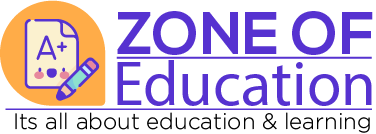
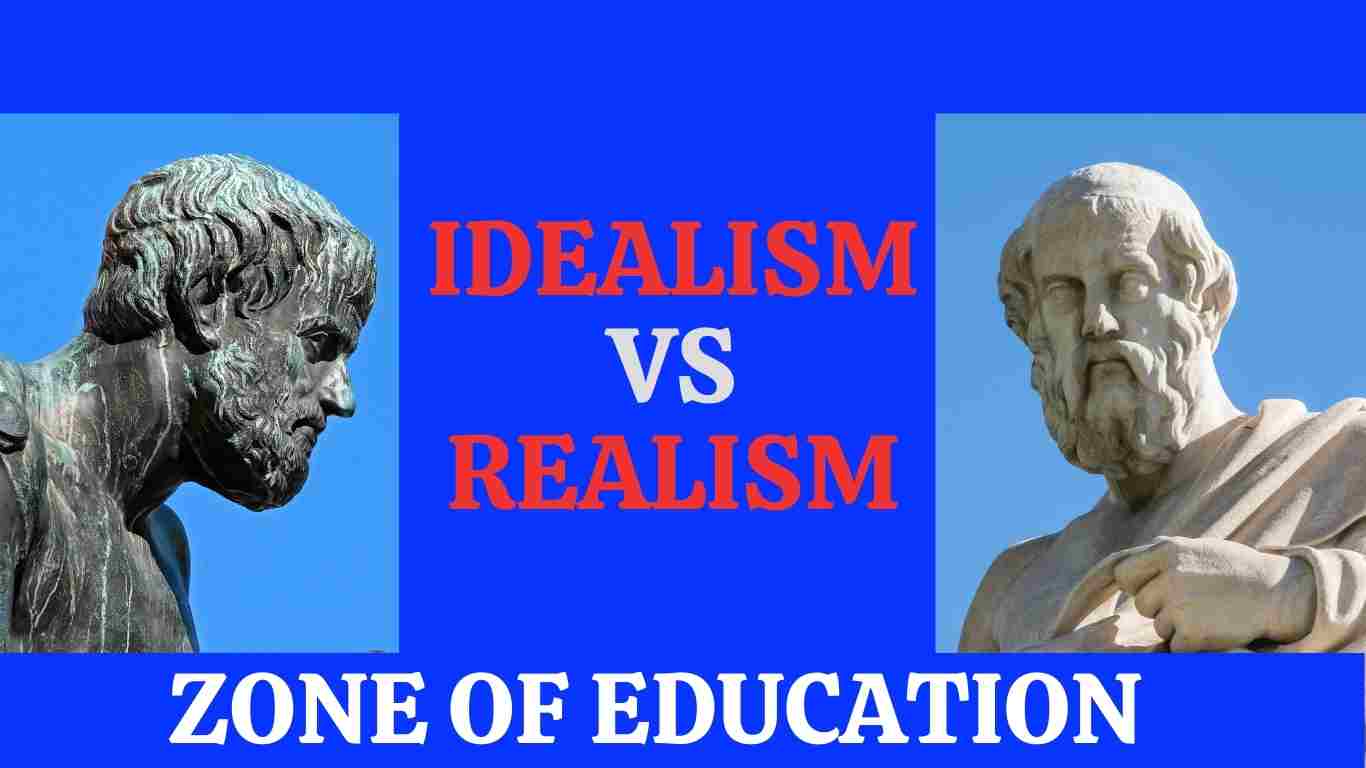
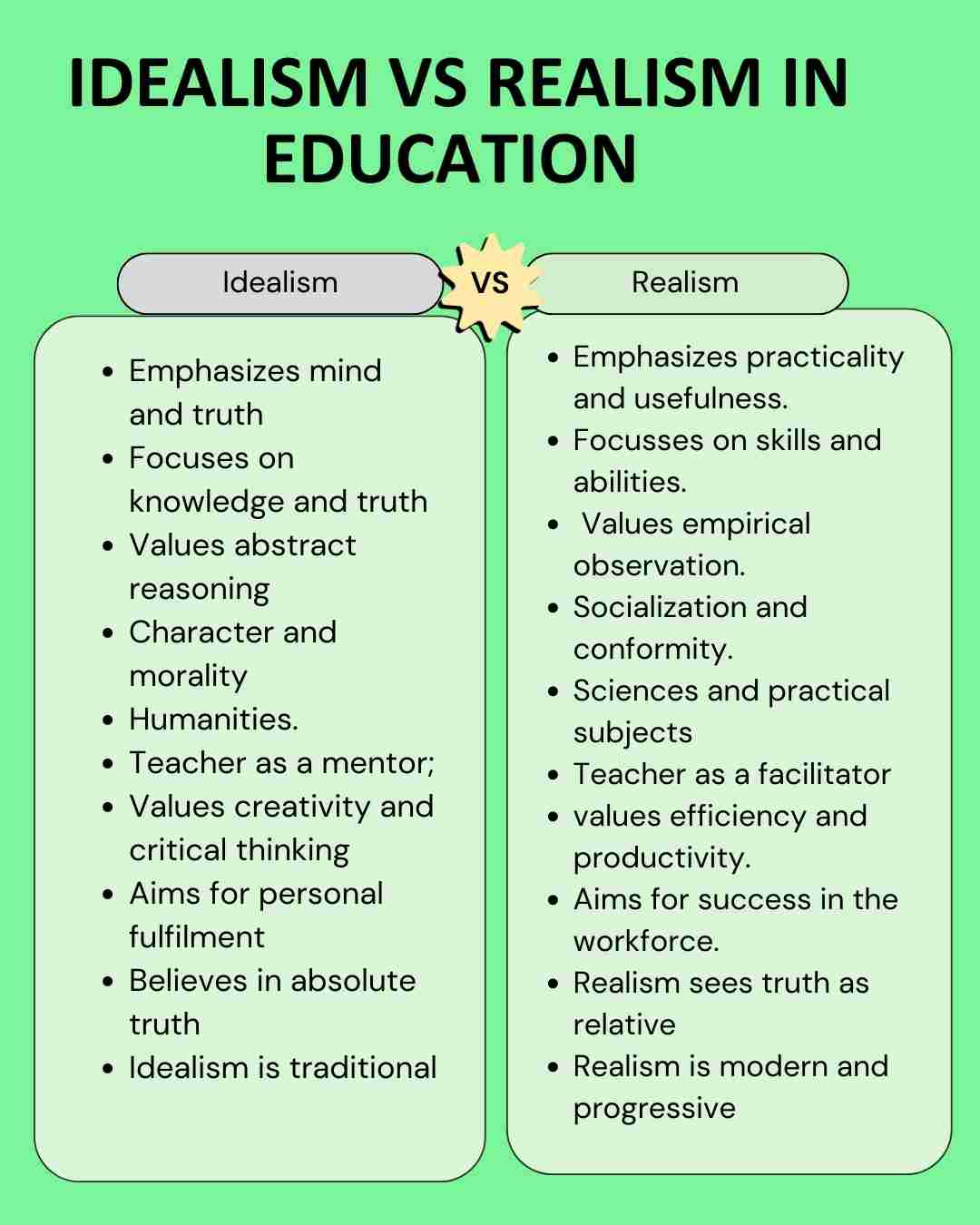

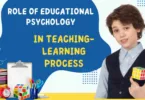
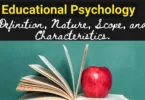
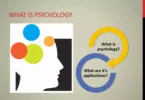

[…] John Dewey, a prominent American philosopher, psychologist, and educational reformer, advocated for progressive education. He felt that education should assist pupils in developing critical thinking and problem-solving skills in addition to helping them acquire knowledge. Dewey’s views of progressive education have significantly impacted the present educational system. This blog will examine his ideals and how they have influenced 21st-century education. […]
[…] a student’s life and guiding them toward a brighter future. Perennialism, an educational philosophy emphasizing the enduring ideas and concepts in education, significantly emphasizes the […]
Thank you very much for sharing, I learned a lot from your article. Very cool. Thanks. nimabi
[…] Pragmatism has many virtues as an educational philosophy, it is not without its detractors. Some of the most prevalent objections of Pragmatism involve […]
[…] role of modern philosophies in education is significant as they provide frameworks and perspectives that inform pedagogical approaches, […]
Can you be more specific about the content of your article? After reading it, I still have some doubts. Hope you can help me.
[…] them into written comments, and even translate them into multiple languages. This makes it an ideal tool for educators working with diverse student […]